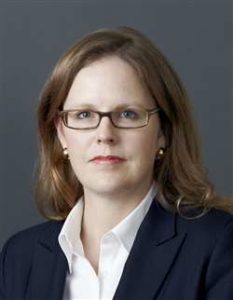
Doerries: LSB report feels like an attack on professionalism
The Law Society has raised its opposition to the Solicitors Regulation Authority’s (SRA) plan to allow practising solicitors to operate from unregulated law firms to an unprecedented level, issuing a report that said there would be little or no economic benefit from the move.
It came as the Bar Council accused the Legal Services Board (LSB) of comparing regulation of the profession to “sewage regulation”.
The Law Society has already delivered a strongly worded response [1] to the SRA consultation on the rewritten Handbook, as well as undertaken surveys of both solicitors and consumers [2], which showed strong opposition to practising solicitors providing advice on unreserved work to the public from unregulated businesses.
In its economic response to the proposal [3], the society warned that it could “reduce public trust in the solicitor profession” and actually increase the amount of unmet need – the existence of which is one of the justifications for the change – as people became “less willing to seek legal advice”.
It argued that the move was “not deregulatory” and was “best thought of as a branding intervention – creating a second-tier brand of ‘individual solicitor’ with reduced regulatory protection and, presumably, lower costs”. This was on the basis that non-practising solicitors can already work for unregulated providers but cannot use the title.
The society went on: “At the moment, the title ‘solicitor’ implies a certain set of regulatory protections, which consumers can trust. Under the SRA proposals, the protections available to consumers will not necessarily be provided by individual solicitors.
“Given the likely inability of consumers to distinguish between the different brands of solicitor, the proposals mean that consumer trust in the term ‘solicitor’ will be eroded.
“This in turn, could erode consumer trust in the entire legal services market, and result in fewer consumers choosing to obtain advice when they have a legal need.
“Consumers put a very large weight on implicit attitudes when making complex purchasing decisions. Public errors by one or two firms in a profession or industry can have a very powerful effect on customer perception of reliability and trust.”
The society warned that if the number of regulated law firms reduced as a result of the SRA’s proposals, fewer firms would be paying for the SRA and fees may increase.
It also predicted that if trust in the status of solicitors was eroded, it was likely to make the English legal system “less of an attractive proposition to businesses selecting the governing law for a contract”.
Chancery Lane accused the SRA of failing to provide “convincing evidence of unmet legal need in the non-reserved area”, and said the regulator had not defined unmet legal need properly; just because consumers satisfy their legal needs through methods other than using a professional overseen by a statutory regulator, does not mean a legal need was unmet.
Catherine Dixon, chief executive of the Law Society, said the SRA had “simply not thought through its proposals adequately”.
She added: “Although there are opportunities for simpler and better regulation, this report demonstrates that the SRA’s proposed changes to the current regulatory framework will not achieve this nor make a market, which is already competitive, more competitive. We are urging the SRA to think again.”
Meanwhile, speaking at the International Bar Association annual conference in Washington DC, chairman of the Bar Council Chantal-Aimée Doerries QC accused the LSB of comparing regulation of the profession to “sewage regulation”.
She said the LSB did not agree with her that encouraging an independent, strong, diverse and effective legal profession should be a regulatory objective under the Legal Services Act – the oversight regulator had instead described it instead as “problematic” and “highly unusual”.
Responding to the launch earlier of the LSB’s blueprint for radical reform of legal regulation with a speech entitled Barbarians at the Gate: The Attack on Professionalism, Ms Doerries concentrated her fire on a footnote – which itself indicated how important the LSB considered the issue to be, she observed.
Footnote 14 of the LSB’s blueprint stated that the oversight regulator had surveyed the objectives of some of the UK’s largest regulators and found that none related to the strength of their sector.
She said the LSB noted that Ofwat (water and sewers) and Ofgem (gas and electricity) had “objectives relating to licence holders being able to finance their operations, which relate to infrastructure operators which need to make large investments while ensuring that they also continue to deliver key utility services, which they note is a situation that does not arise in the legal sector”.
Ms Doerries went on: “It is, to my mind, evidence of the challenges legal professionals face in the 21st century that the regulation of their profession is compared to the task of sewage regulation.
“Of course if the sewage providers, privatised as they are, fail, government can step in. It is so obvious as to go without saying, and yet apparently not. If there is no longer a strong independent legal profession, there will be no one to step in to uphold the rule of law.”
The Bar chairman went on to attack the LSB’s proposal that regulation should be based on activity rather than professional title and its argument that despite the “strong brand power” of titles like solicitor and barrister, they could act as a barrier on entry to the legal services market.
She added: “Perhaps it is putting it a little high to describe this as an attack on professionalism and professionals, but that is what it feels like.”